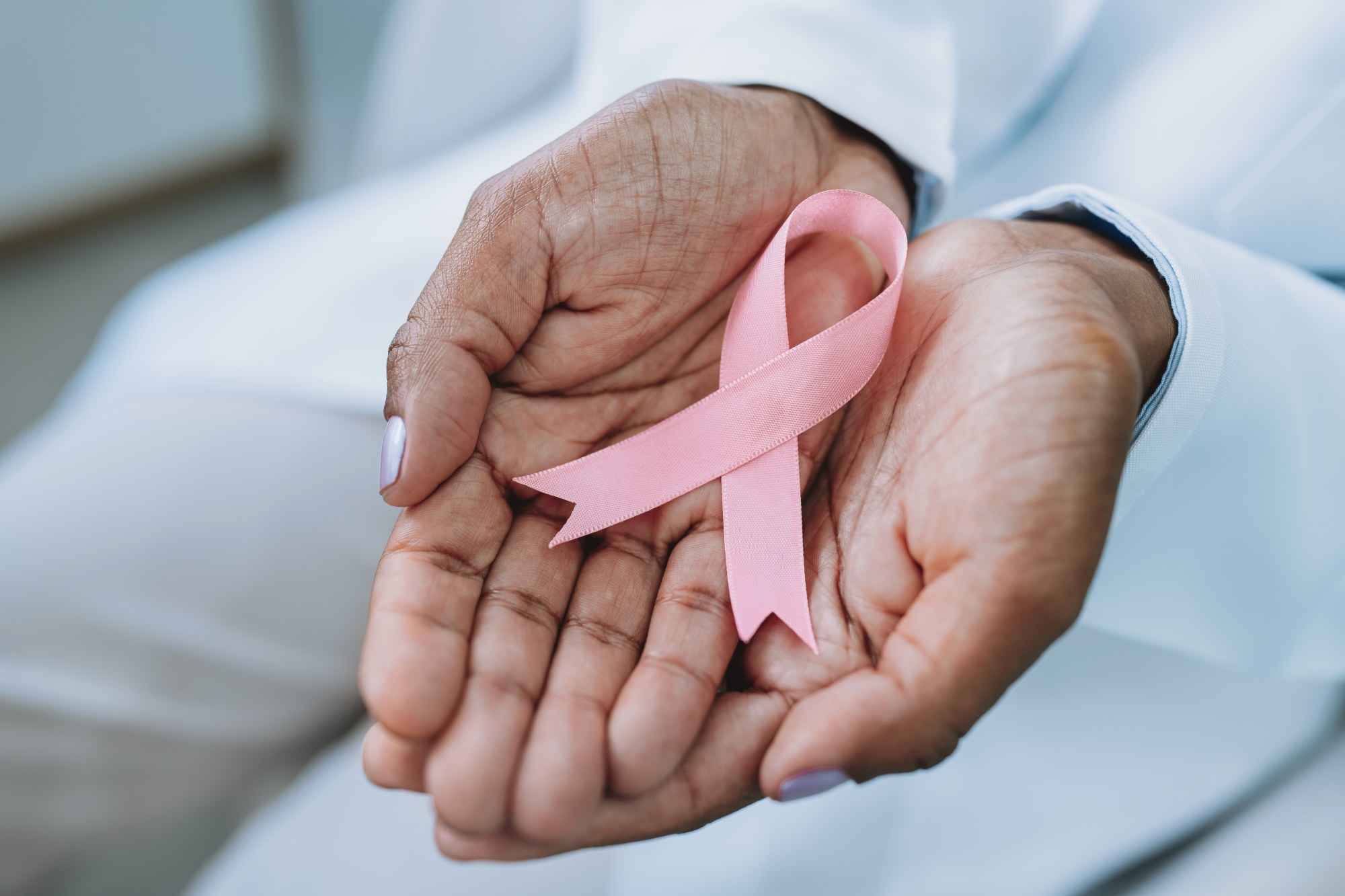After cancer, many survivors face complex, dynamic needs that traditional medical care often overlooks. With Cancer Care Compass, employees receive personalized, holistic support designed to help them fully recover—in mind, body, and in spirit.
54 million: that’s how many people worldwide are living within five years of a cancer diagnosis in 2025. But how many of them are not just surviving, but truly thriving, is quite another matter.
Research shows that at least a quarter of cancer survivors continue to face significant challenges after treatment, from anxiety and depression to functional limitations and psychosocial distress. Meanwhile, as many as 70 percent struggle with mental health issues at some point along their journey.
Suffice to say, the road to recovery is long, complex, and deeply personal. Yet it’s often misunderstood—by friends and family, colleagues and employers, even healthcare providers. Despite good intentions, many misconceive what recovery actually entails: how long it takes, what it looks like, and what survivors are healing from.
Because in truth, cancer recovery involves much more than physical rehabilitation—and even the emotional healing process extends well beyond the initial shock, fear, or uncertainty that accompanies a cancer diagnosis. Feelings of guilt and shame, abandonment, paralysis and disorientation are often experienced—and just as often overlooked.
The Unseen Challenges of Survivorship
Beyond the logistical hurdles of returning to work, managing finances, or resuming daily responsibilities, many survivors grapple with a profound loss of identity, direction, and purpose. Routines that once felt familiar now feel foreign. Priorities shift. Even the roles or careers that once defined them may no longer resonate or align with who they’ve become.
And just as they begin navigating this internal transformation, the external support that sustained them through their treatment suddenly recedes. The dedicated team of healthcare professionals they once saw regularly steps away. At the same time, friends and family—believing the worst is over—return to their own routines, expecting survivors to do the same—leaving many feeling unseen, unmoored, and alone.
Thus, after fighting to survive, many survivors find themselves unsure how to live. The absence of structured, rehabilitative aftercare—particularly when it comes to psychological and psychosocial support—only magnifies their dilemma.
The bottom line: survivors need more than medical follow-up. They need holistic, sustained, and personalized support. They deserve someone who understands the full spectrum of what they’re facing—physically, emotionally, practically, and spiritually. Someone who can serve as a steady, trusted guide in a time of profound uncertainty.
Above all, survivors need someone who can walk alongside them through every step of the journey—someone who can do more than simply help them return to their former lives and routines, but empower them to move forward in a way that is sustainable, meaningful, and true to who and where they are now.
Enter the Cancer Care Coordinator—and the Return to Work: Cancer Care Compass program.
Charting a Better Course: The Cancer Care Compass Approach to Holistic Healing
Rooted in the Learning, Living, Social, Working (LLSW) model, Return to Work: Cancer Care Compass is a human-centered, clinically guided support program designed specifically for employees navigating life after a cancer diagnosis. At its core is the Cancer Care Coordinator—a single, clinically trained professional who provides continuous, personalized care throughout the entire cancer journey.
More than a case manager or health navigator, the Cancer Care Coordinator offers holistic, adaptive guidance tailored to each individual’s evolving needs—whether emotional, practical, psychosocial, or existential. Trained by world-renowned experts in oncology and psychiatric rehabilitation, each coordinator is equipped to offer care that is clinically sound, emotionally attuned, and vocationally empowering.
“Lingering fatigue, brain fog, and chronic pain—these are all real challenges survivors face after treatment, but they’re only one part of the story,” explains Sarah Wood, VP and General Manager of Enterprise Solutions at WPO. “What often gets missed are the invisible wounds: the emotional fallout of living in survival mode for months or even years. The fear. The disorientation. The grief over who you were, and the uncertainty about where you’re headed. These aren’t ‘side’ effects—they’re central to the recovery process. That’s why our Cancer Care Coordinators are trained to recognize and address these overlooked struggles head-on. Because until these unseen needs are met, true healing cannot begin.”
By serving as steady points of connection at a time of heightened instability, the coordinators foster trust, ensure continuity, and provide a sense of stability and control when it’s needed most. By addressing not only logistical challenges but also employees’ transformed relationships with their identities, goals, values, and capabilities, the Cancer Care Coordinators support recovery in its fullest sense—going beyond standard work-life reintegration to help employees restore their sense of purpose, self-confidence, and agency.
“Helping cancer survivors confidently return to life and work is a vital part of what our Cancer Care Coordinators do,” asserts Yara Maria Kamel, clinical psychologist and Clinical SME for the Return to Work: Cancer Care Compass program. “To achieve this, we address the disruptions to self-confidence that cancer often causes. Survivors need to feel they have the skills, resources, and support to confidently re-enter their lives and careers, feeling capable, committed, and in control. Through vocational and identity-centered support, our coordinators assist survivors in reconnecting with themselves and reintegrate into life and work in an empowering and sustainable manner.”
The benefits of such unparalleled support—for employees and their employers—cannot be overstated. While the program at once provides dedicated support to employees, it also equips leaders to foster workplace environments rooted in empathy, inclusion, and care—qualities essential for thriving in today’s culture-driven world of work.
New research shows that over 80 percent of survivors say they would feel greater loyalty to employers who offer extensive support. Just as significantly, over 90 percent report that feeling supported at work is essential to their health and overall wellbeing—underscoring the critical role employers can play in facilitating survivors’ full recovery.
“Cancer survivors often seek stability, a sense of connection, purpose, and belonging in their journey forward,” Kamel says. “Employers have a real opportunity to meet that need, but it takes more than just goodwill: it requires a firm commitment to creating a workplace where survivors feel seen, supported, and valued.”
“When employers recognize each cancer survivor’s individual experience with care and curiosity, they help create the conditions for healing and build a culture where everyone can thrive.”
Stepping Up: Reinventing Return-to-Work Support for Cancer Survivors
As cancer—and survivability rates—continue to rise, the presence of cancer in the workplace inevitably will, too. The organizations that rise to the occasion and create resilient, thriving workplaces amidst the challenges will be those who offer timely, comprehensive, and responsive support for employees recovering from cancer.
As with burnout, disengagement, and all other workforce challenges impacting organizations today, the solution lies in recognizing that recovery cannot be achieved in isolation. Leaders cannot expect their employees to “bounce back” or “get back to normal’ without playing an active role in their reintegration and recovery.
Employers have a duty of care to protect their people from harm. Protecting workers from the lasting psychological, psychosocial, and even spiritual effects of cancer is merely another facet of that duty.
As the boundaries between work and life continue to blur—and as more employees expect their employers to provide adequate support for their holistic, and not just workplace, wellbeing—those that step up and offer dedicated cancer support will be those who ultimately reap the benefits of a happy, healthy, and engaged workforce, and a strong workplace culture in 2025 and beyond.
To learn more about how Workplace Options supports employees navigating cancer—and how our Return to Work: Cancer Care Compass program supports every step of the cancer journey—connect with us today or visit https://www.workplaceoptions.com/wellbeing_solutions/cancer-care-compass/ for more information.





































